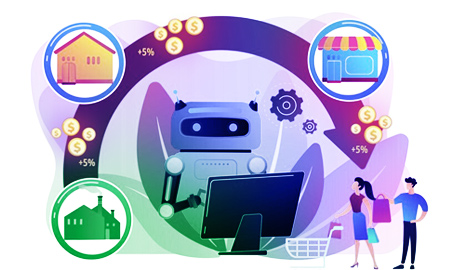The rise in tuition fees, followed by tremendous economic pressure due to the pandemic, has severely affected students’ financial condition. New graduates find it challenging to secure the right job; as a result, they fail to pay off their debts. It has been a concerning factor for most students as the U.S. Supreme Court has nullified President Biden’s plan to forgive up to $20,000 per person in student debt. President Biden announced last August to provide relief to over 20 million Americans with college loans, lowering the balances of 20 million others who qualified for the relief.
What does the HEROES Act State?
The Higher Education Relief Opportunities for Student Act of 2003 is a version of the law enacted 2001 after the September 11 attacks. It gave the Secretary of Education to “waive or modify any statutory or regulatory provision” to protect borrowers affected by terrorist attacks. In March 2020, President Donald Trump invoked the HEROES Act to pause student loan repayment and suspend interest accrual.
The Biden administration followed it. The pause in the payment has cost the U.S. government over $100 billion. The loan forgiveness program aimed to end $10,000 in debt for individuals earning less than $125000 per year, or $250,000 per household, and $20,000 for those receiving Pell Grants for low-income families.
The forgiveness plan aimed to ensure borrowers aren’t financially affected due to the pandemic once the payment process gets resumed. The administration claims that “the plain language of the HEROES Act authorizes the plan.
Supreme Court’s verdict
The U.S. Supreme Court struck down President Biden’s plan to discharge student loan debt for millions of Americans. In a 6-3 decision, the court ruled that the administration exceeded its authority under a 2003 federal law to forgive student debt.
While the Act allows the Secretary (Education) to waive or modify financial assistance programs under the Education Act, the ruling clarified, it did not allow the Secretary to rewrite that statute to the extent of canceling $430 billion of student loan principal.
The court ruled in favor of Missouri and five other states. The modification under the Department of Education had overstepped its authority to forgive some student loans. In contrast, the program expanded forgiveness to nearly every borrower in the country.
The beset on the proposal by a host of leaders ultimately led to the Supreme Court stepping in. “Canceling hundreds of billions of dollars through a decree is a breathtaking assertion of power. It’s a matter of great economic and political significance.
In the final ruling, Chief Justice John G. Roberts Jr. stated the administration logic- “waive or modify” loan terms for debt cancellation- was a vast stretch, “in the same sense that the French Revolution ‘modified’ the status of the French Nobility.”
The Biden administration’s response
Hours after the release of the Supreme Court decision, President Biden states, “has closed one path… Now we’re going to try another.” The President also claimed that the Department of Education would establish a “new path” for repayment programs for borrowers who will be forced to resume repayments on their loans due to the end of the pandemic-era pause.
The Department of Education will not refer delinquent borrowers to collection agencies for at least 12 months. As a result, they have time to get their finances in order. Meanwhile, the administration looks further to explore a new legal pathway consistent with the Supreme Court ruling to allow loan forgiveness for as many borrowers as possible.
Mr. Biden’s other way to forgive the debt
The new attempt will be based on a different statute, the 1965 Higher Education Act. Also, President Biden disagrees with the court’s ruling and its implications for restraining executive power. The goal is to “compromise, waive or release loans under certain circumstances. However, the President believes this process will take time.
The administration plans to create a 12-month “on-ramp repayment program .” This program will start on student loan payment resumes in the fall. The Department of Education won’t credit agencies for those who miss payments.
Does it impact debt repayment?
While student loan debt collection would resume by September 1, Mr. Biden’s ramp plan might take months to enact. Borrowers should plan for repayment without any relief in September. We believe the Supreme Court ruling will impact the borrowers without a debt relief of $20,000.
Repayments will start by September 1. This comes after it was put on hold and interest rates set to 0% in March 2020. Millions of Americans with student loans last had to pay during the pandemic.
Public loan forgiveness
Some debtors may qualify for loan cancellation after ten years of regular payments, called Public Service Loan Forgiveness. This is basically for those working for a government agency or a nonprofit. The program came up with some restrictions; it has got overhauled. This means borrowers who didn’t qualify previously should check again.
As debtors are gearing up to pay their debt, businesses need to define plans for seamless payment flow. Financial institutes need to run an approach that ensures smooth revenue flow. In such circumstances, it’s best to get help from the professionals. There are student loan debt collection agencies that can help businesses improve collection rates.
Here’s what the Investopedia data shows:
- The total amount of outstanding student loans ranks at $1.76 trillion
- Adults who were behind student loan payment ranks at 12%
- Less than 1% of all student loan debt was at least 90 days delinquent
Seamless debt collection approach
The collection process is challenging, and companies must pay attention to it. Also, boundaries are set regarding student loan debt collection; only a professional firm can run the right strategy in such considerations. It’s seen that a large number of recent college graduates face unforeseen challenges. Now, it’s up to the agents to chalk out the strategy to ensure the payment stays consistent. Meanwhile, business reputation is a non-negotiable part; the right way is to maintain decorum and ensure payment flow.
The fundamental principle is adapting to an approach per the client’s capability. You must understand that not all debtors can be the same, and embracing the right way is significant. The collection is generally a dialogue between the client and the business. One wrong approach, and you may stall the payment flow.
Omnichannel strategy
Businesses have several ways to get in touch with past-due customers. At Vital Solutions, we utilize the best advantage of digital communication. Running a digital-first collection strategy can reduce 20-25% reduction in non-performing loans compared to traditional strategies.
There’s no hard and fast rule. Some consumers respond better to emails, whereas others prefer SMS messages. It’s best to test different options until the one that suits you best.
Customized messaging
It’s vital to send the right message at the correct count. A student loan debt collection agency will optimize the collection approach and tailor the messaging for every past-due customer. Collection agencies utilize the AI-powered bandit that allows you to send the best message.
There’s a range of messaging templates, and the agents utilize the template with the highest engagement. Here, the focus will be on the high-priority accounts that need more interaction.
Self-service option
These days consumers like to opt for self-service processes. It’s frustrating to wait in a call queue to speak to the next available agent. Also, past-due customers will likely pay when you let them take control of the process. At Vital Solutions, we can appropriately tailor the message and encourage consumers to opt for a self-service repayment process.
The customizable installment plan provides power over the entire repayment process. This ensures that there are zero barriers when it comes to revenue flow.
Debt collection rules
Over the years, loan providers have come under comprehensive scrutiny. In fact, many states are now rallying for better regulations and transparency. Debt collection companies need to meet new requirements and responsibilities. These requirements are an attempt to create the rights of student loan borrowers.
Licensed
A service provider must meet all the demands of the U.S. Department of Education to obtain a license. These include,
- Receiving and inspecting complaints from student loan borrowers
- Compliance data compilation
- Evaluate federal, state, and local laws and recommend necessary
Requirements
Under the law, all these requirements are essential for student loan debt collection agencies
- Maintain records for at least two years from the final payment or assignment
- Get instruction on handling overpayments
- Apply for partial payments as specified
- Evaluate borrower’s eligibility for income-based repayment programs before placing them in default
Prohibited actions
The law also identifies several measures that are prohibited. These include:
- Misrepresentation of the loan amount
- Misapplying payments to the outstanding loan balance
- Inaccurate reporting of information to the credit bureaus
Adapt to the latest approach
Economic uncertainty and rising inflation are concerning factors in today’s world. More than 1 in 13 federal student loan holders must meet payment obligations. Those borrowers might be unable to make payments in the long term. A professional student loan debt collection agency will embrace modern methods; as a result, you can ensure that students don’t become NPLs. With an omnichannel strategy, you can tailor messaging so that the debt collection approach stays seamless.
Conclusion
No matter a business’s efforts, getting help from a debt collection agency is essential. The current economic conditions are responsible for the uptick in delinquencies. Most consumers want to pay bills on time, and our experts at Vital Solutions can develop the right approach for smooth debt collection.



